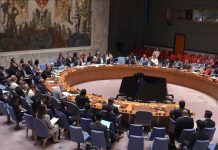By
Tuhu Nugraha
Africa-Press – Lesotho. In a time of rising skepticism toward artificial intelligence (AI) in the developed world, the Global South presents a surprising counter-narrative: trust in AI is not only intact, it is thriving. The 2025 Edelman Trust Barometer reveals that public trust in AI is significantly higher in developing countries than in advanced economies. China, for example, is reportedly 40 points more trusting of AI than the United States.
This trust gap tells a deeper story. In many parts of the Global South, AI is not viewed with suspicion, but rather embraced as a leapfrogging technology—a strategic means of overcoming long-standing development challenges. From improving agricultural productivity and delivering mobile-based healthcare to bridging educational divides, AI holds tangible promise for nations historically excluded from the benefits of previous industrial revolutions.
Demographics further strengthen this outlook. The Global South is overwhelmingly young. Digital-native generations in countries like Indonesia, Nigeria, and India are not only more open to experimentation, they are also actively seeking tools that can enhance productivity and social mobility. For them, AI is not an abstract ethical dilemma but a practical pathway to opportunity.
Still, optimism must not be mistaken for readiness. Many developing nations face major gaps in regulatory clarity, institutional capacity, and access to high-quality data. Yet paradoxically, this has not hindered trust—it may have even fueled it. With fewer regulatory constraints and less media-driven panic, public discourse on AI in the Global South tends to focus on potential rather than peril.
This opens a unique opportunity: can the Global South shape a new narrative around AI—one centered on inclusion, empowerment, and ethics without fear?
To do so, several steps are essential. First, countries must build adaptive regulatory frameworks, such as AI sandboxes that enable experimentation while upholding transparency and accountability. Public agencies should promote explainable AI so that citizens can understand how decisions are made, especially when those decisions affect livelihoods.
Second, governments and civil society must invest in AI literacy that empowers people not only to use AI productively but also to recognize and mitigate risks such as algorithmic bias, misinformation, and scams. This means creating digital learning ecosystems rooted in local languages, values, and contexts.
Third, the Global South must elevate its own use cases—solutions tailored to local realities. From chatbots providing legal advice to farmers using AI-powered weather forecasting, these innovations should be scaled, shared, and celebrated. A regional platform for AI collaboration across Africa, Asia, and Latin America could become a powerful vehicle for South-South knowledge exchange.
Ultimately, the Global South offers the world a compelling lesson: trust in technology is not a luxury of the rich, but a necessity of the rising. By embracing AI through a lens of dignity, pragmatism, and hope, developing nations are not only catching up—they are reimagining the future. And in doing so, they may just help the rest of the world rediscover what responsible, human-centered AI could look like.
moderndiplomacy
For More News And Analysis About Lesotho Follow Africa-Press






